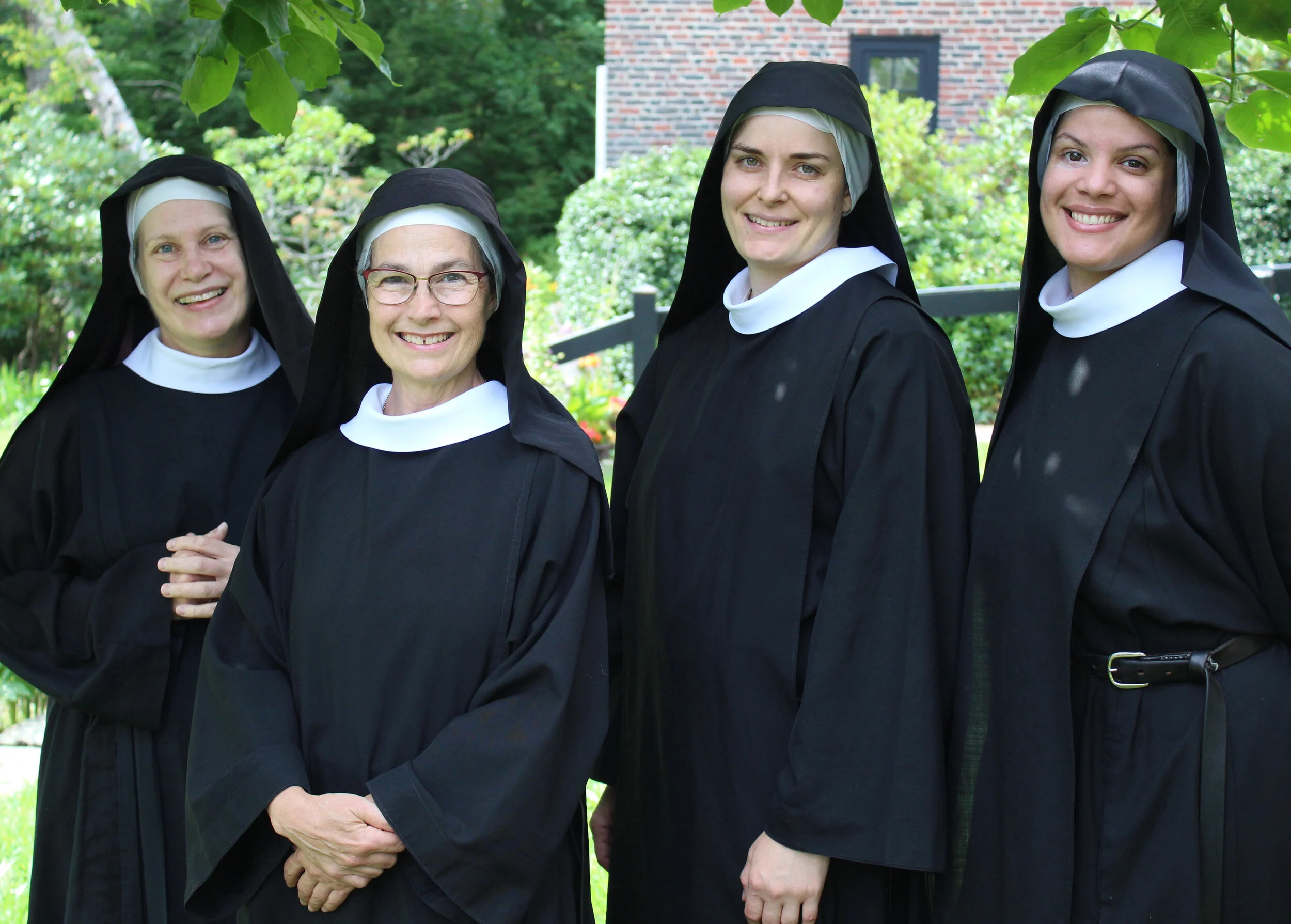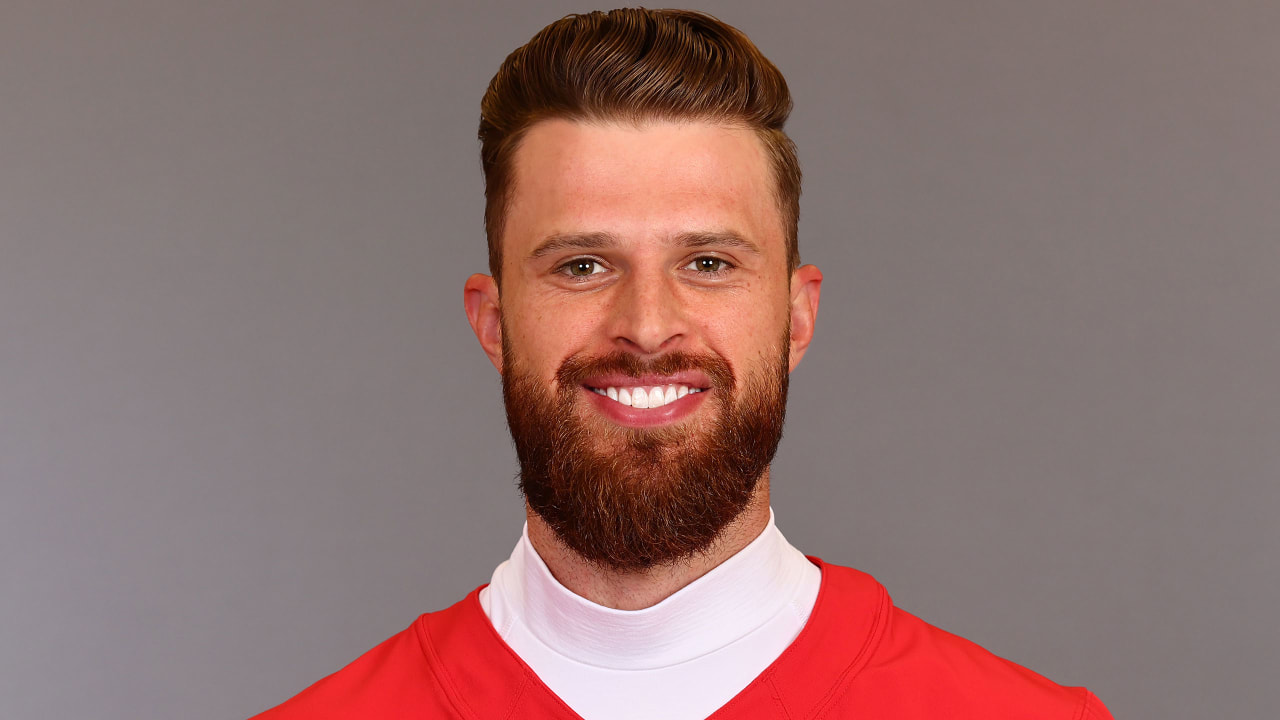In a recent and highly publicized event, Kansas City Chiefs kicker Harrison Butker delivered a commencement speech at Benedictine College that has sparked widespread controversy.
The speech, which touched on topics such as Pride Month, women’s roles, and diversity initiatives, has drawn both fierce criticism and staunch support.
This article delves into the details of the speech, the subsequent reactions, and Butker’s unwavering defense of his views.
Background of Harrison Butker
Early Life and Career

Harrison Butker’s journey to becoming a professional football player is both inspiring and illustrative of his strong personal values.
Born and raised in Georgia, Butker attended Georgia Tech, where he excelled as a kicker.
His dedication to both his sport and his faith has been a constant theme throughout his life.
Butker’s college career set the stage for his success in the NFL.
Drafted by the Kansas City Chiefs, he quickly made a name for himself with his accurate kicking and clutch performances.
His faith, deeply rooted in his Catholic upbringing, has always been a guiding force, influencing his decisions on and off the field.
Off the field, Butker is known for his involvement in various charitable activities and his commitment to his family.
His personal life and professional career are intertwined with his Catholic faith, which he openly discusses and integrates into his public persona.
Professional Achievements
Harrison Butker has had a remarkable career in the NFL.
Since joining the Kansas City Chiefs, he has become one of the league’s most reliable kickers.
His ability to perform under pressure has earned him a reputation as a clutch player, contributing to the Chiefs’ Super Bowl victories.
Butker’s consistent performance has not gone unnoticed.
He has received numerous accolades, including being named AFC Special Teams Player of the Week multiple times.
His role in the Chiefs’ success has cemented his status as a key player in the NFL.
Beyond his on-field accomplishments, Butker’s leadership and character have been praised by teammates and coaches alike.
His commitment to excellence and his strong moral compass make him a respected figure in the sports community.
Personal Beliefs and Values

Butker’s Catholic faith is a cornerstone of his identity.
He is outspoken about his beliefs, which influence his views on social and moral issues.
His dedication to his faith is evident in his speeches, public appearances, and charitable work.
His commitment to Catholic values often puts him at odds with more secular viewpoints, but Butker remains steadfast.
He believes in the importance of living according to one’s principles, even when faced with criticism or misunderstanding.
This unwavering stance has made Butker a polarizing figure.
While some admire his courage to speak out, others criticize him for his controversial opinions.
Regardless, Butker continues to advocate for his beliefs with conviction.
The Controversial Commencement Speech
Overview of the Speech

Butker’s commencement speech at Benedictine College on May 11th was a direct reflection of his Catholic values.
He emphasized the importance of traditional gender roles and criticized modern societal norms.
His remarks quickly went viral, igniting a firestorm of reactions.
In his speech, Butker stated, “Some of you may go on to lead successful careers in the world, but I would venture to guess that the majority of you are most excited about your marriage and the children you will bring into this world.”
This comment, among others, was perceived by many as promoting a narrow view of women’s roles.
Butker also addressed topics like Pride Month, which he referred to as one of “the deadly sins,” and criticized abortion, IVF, and surrogacy.
His statements were seen by many as homophobic and sexist, sparking significant backlash.
Key Statements and Reactions
One of the most contentious parts of Butker’s speech was his assertion that women should prioritize being wives and mothers.
He told the graduates, “I think it is you, the women, who have had the most diabolical lies told to you.”
This statement was interpreted as dismissive of women’s professional and academic aspirations.
Butker’s comments on Pride Month were particularly inflammatory.
Describing it as a “deadly sin,” he alienated many in the LGBTQ+ community and their allies.
These remarks drew sharp criticism from advocacy groups like GLAAD, which labeled his speech as “ill-informed and woefully out of step with Americans about Pride, LGBTQ people and women.”
The NFL also distanced itself from Butker’s views.
Jonathan Beane, the NFL’s chief diversity and inclusion officer, stated, “His views are not those of the NFL as an organization. The NFL is steadfast in our commitment to inclusion, which only makes our league stronger.”
Immediate Fallout
The immediate fallout from Butker’s speech was intense.
Social media exploded with reactions, ranging from support to outrage.
Critics argued that his views were outdated and harmful, while supporters praised his courage to speak his truth.
The controversy extended to Butker’s teammates.
Chiefs quarterback Patrick Mahomes remarked, “I’ve known Harrison for seven years, and I judge him by the character that he shows every single day, and that’s a good person.”
However, he acknowledged, “There’s some things he said I don’t necessarily agree with.”
Chiefs tight end Travis Kelce also weighed in, stating on his podcast, “I cherish him as a teammate…but when it comes down to his views and what he said at St. Benedict’s commencement speech, those are his. I can’t say I agree with the majority of it or just about any of it.”
Defense of the Speech
Butker’s Response
In his first public comments following the commencement speech, Butker defended his remarks during the Regina Caeli Academy Courage Under Fire Gala.
He reiterated his commitment to his Catholic faith and addressed the backlash he faced.
“If it wasn’t clear that the timeless Catholic values are hated by many, it is now,” Butker declared.
He emphasized that his speech was rooted in his religious beliefs and that he had expected the polarizing reaction it received.
Butker expressed no regret for his comments, stating, “It’s a decision I’ve consciously made and one I do not regret at all. If we have truth and charity, we should trust in the Lord’s providence and let the Holy Ghost do the rest of the work.”
Support from Religious and Conservative Groups
Butker received significant support from religious and conservative groups who applauded his courage to speak out.
The Regina Caeli Academy, which hosted the gala, is a hybrid homeschooling organization that shares Butker’s commitment to Catholic values.
Several speakers at the gala, including right-wing media personality Matt Walsh, echoed Butker’s sentiments.
They praised his steadfastness in the face of adversity and his dedication to promoting traditional Catholic values.
Supporters argued that Butker’s speech was a necessary reminder of the importance of religious freedom and the right to express one’s beliefs.
They viewed the backlash as an example of societal intolerance towards conservative and religious viewpoints.
Freedom of Speech and Religion
The debate surrounding Butker’s speech also highlighted broader issues of freedom of speech and religion.
Many argued that Butker was exercising his right to express his religious beliefs, even if those beliefs were unpopular.
Butker himself emphasized this point, saying, “At the outset, many people expressed a shocking level of hate. But as the days went on, even those who disagreed with my viewpoints shared their support for my freedom of religion.”
This aspect of the controversy underscores the tension between maintaining personal beliefs and navigating the expectations of public discourse.
It raises important questions about the limits of free speech and the role of religious expression in public life.
Criticism and Backlash
Responses from Advocacy Groups
Advocacy groups, particularly those representing the LGBTQ+ community, were quick to condemn Butker’s speech.
GLAAD president and CEO Sarah Kate Ellis described the speech as “a clear miss” and “inaccurate, ill-informed and woefully out of step with Americans about Pride, LGBTQ people and women.”
These groups argued that Butker’s comments were not only offensive but also harmful, perpetuating stereotypes and discrimination against marginalized communities.
They called for greater sensitivity and understanding from public figures, especially those with significant influence.
The sisters of Mount St. Scholastica monastery, a founding institution of Benedictine College, also distanced themselves from Butker’s remarks.
They stated, “The sisters of Mount St. Scholastica do not believe that Harrison Butker’s comments represent the Catholic, Benedictine, liberal arts college that our founders envisioned and in which we have been so invested.”
Public Figures and Organizations
Public figures and organizations also weighed in on the controversy.
The NFL made it clear that Butker’s views did not represent the league.
In a statement, the NFL emphasized its commitment to diversity and inclusion, distancing itself from Butker’s comments.
Former Las Vegas Raiders defensive end Isaac Rochell poked fun at the situation by calling himself a “stay-at-home husband,” highlighting the irony and sparking further discussion about gender roles and expectations.
The response from Butker’s teammates, including Mahomes and Kelce, was mixed.
While they acknowledged Butker’s right to his beliefs, they also expressed their disagreement with his views.
This balanced approach underscored the complexity of the situation and the importance of respecting diverse perspectives.
Impact on the NFL and Teammates’ Reactions
The impact of Butker’s speech extended beyond the immediate backlash.
It prompted broader discussions within the NFL about the role of athletes in social and political discourse.
The league reiterated its commitment to inclusion and diversity, emphasizing that individual views do not reflect the organization’s values.
Butker’s teammates, including Mahomes and Kelce, offered nuanced responses that highlighted their personal relationships with him.
Mahomes described Butker as “a good person” who “cares about the people around him, cares about his family and wants to make a good impact in society.”
Kelce echoed these sentiments on his podcast, “New Heights,” where he stated, “I cherish him as a teammate. I think Pat said it best where he is every bit of a great person and a great teammate.”
Despite their disagreements, both Mahomes and Kelce emphasized their respect for Butker as an individual.
Themes of the Speech
Catholic Values and Modern Society
Butker’s speech was deeply rooted in Catholic values, which he believes are increasingly at odds with modern societal norms.
He argued that these timeless values are “hated by many,” highlighting the tension between traditional religious beliefs and contemporary cultural trends.
Butker’s emphasis on Catholic values resonated with many who share his faith.
He urged his audience to “trust in the Lord’s providence and let the Holy Ghost do the rest of the work,” reflecting his belief in the power of faith to guide one’s actions and decisions.
This theme underscores the broader cultural divide between those who adhere to traditional religious values and those who advocate for more progressive social changes.
It highlights the challenges faced by individuals like Butker who navigate this divide in the public eye.
Gender Roles and Family
One of the most controversial aspects of Butker’s speech was his view on gender roles and the importance of family.
He asserted that being a homemaker was one of the “most important” titles a woman could hold, drawing sharp criticism for what many saw as a regressive stance.
Butker’s comments were seen as undermining the progress made towards gender equality, especially in professional and academic spheres.
Critics argued that his views reinforced outdated stereotypes and failed to recognize the diverse aspirations of women today.
However, Butker’s supporters saw his emphasis on family values as a necessary counterpoint to what they perceive as a devaluation of traditional family roles.
This debate reflects ongoing societal tensions about the evolving roles of women and the importance of family in contemporary life.
Controversial Topics: Pride Month and Diversity Initiatives
Butker’s remarks on Pride Month and diversity initiatives were particularly contentious.
Describing Pride Month as a “deadly sin,” he alienated many in the LGBTQ+ community and sparked widespread backlash.
His criticism of diversity initiatives further fueled the controversy.
Butker argued that these initiatives often lead to “the tyranny of diversity, equity and inclusion,” suggesting that they undermine merit and contribute to societal disorder.
This perspective was criticized as dismissive of efforts to promote inclusion and equity.
These controversial topics highlight the deep divisions in public opinion on issues of LGBTQ+ rights and diversity.
Butker’s comments serve as a reminder of the challenges faced by those who hold traditional views in an increasingly diverse and inclusive society.
Personal Reflections and Convictions
Butker’s Personal Commitment to His Faith
Throughout the controversy, Butker has remained steadfast in his commitment to his Catholic faith.
He views his public expression of his beliefs as a reflection of his dedication to living according to his principles, regardless of the backlash.
Butker’s defense of his speech at the Courage Under Fire Gala emphasized this commitment.
He stated, “Our love for Jesus and thus our desire to speak out should never be outweighed by the longing of our fallen nature to be loved by the world.”
This unwavering stance highlights the central role of faith in Butker’s life and decisions.
It underscores the importance he places on remaining true to his beliefs, even in the face of public criticism.
The Role of Faith in Public Life
Butker’s situation raises important questions about the role of faith in public life.
As a high-profile athlete, his statements carry significant weight and influence, making his expressions of faith particularly impactful.
While some argue that personal beliefs should remain private, others believe that public figures have a responsibility to use their platforms to advocate for their values.
Butker’s case illustrates the complexities and potential repercussions of this dynamic.
Ultimately, Butker’s decision to speak out reflects his belief in the importance of living authentically.
His commitment to his faith serves as both an inspiration and a point of contention, highlighting the ongoing debate about the place of religious expression in the public sphere.
Support and Criticism from the Catholic Community
Support from Catholic Institutions and Figures

Butker received substantial support from various Catholic institutions and figures.
The Regina Caeli Academy, which hosted the gala where he defended his speech, shares Butker’s commitment to promoting traditional Catholic values.
Other notable Catholic figures and organizations also voiced their support.
They praised Butker for his courage to speak out and defend his beliefs, viewing his stance as a necessary affirmation of religious values in a secular society.
This support highlights the alignment between Butker’s views and those of many within the Catholic community.
It underscores the shared belief in the importance of advocating for religious principles, even in the face of public opposition.
Internal Divisions

Despite the support, there were also significant divisions within the Catholic community regarding Butker’s speech.
The sisters of Mount St. Scholastica, a founding institution of Benedictine College, explicitly distanced themselves from his remarks.
In their statement, they emphasized that Butker’s comments did not represent the inclusive vision they had for the college.
This division reflects the broader debates within the Catholic community about how to balance traditional values with contemporary societal changes.
These internal divisions highlight the complexity of navigating faith in a modern context.
They underscore the diversity of thought within religious communities and the challenges of representing a unified stance on controversial issues.
The Role of Athletes in Social and Political Discourse
Athletes as Public Figures
Butker’s speech and the ensuing controversy underscore the significant role athletes play as public figures.
Their statements and actions can influence public opinion and spark important conversations about social and political issues.
As prominent figures, athletes like Butker have platforms that reach wide audiences.
This visibility comes with both opportunities and responsibilities, as their words and actions can have far-reaching implications.
Butker’s case illustrates the powerful impact athletes can have on public discourse.
It also highlights the scrutiny they face and the delicate balance they must strike between personal beliefs and public responsibilities.
The Balance Between Personal Beliefs and Public Responsibilities
The controversy surrounding Butker’s speech raises important questions about how athletes balance their personal beliefs with their public roles.
While they have the right to express their views, they must also consider the broader impact of their statements.
Butker’s decision to speak out reflects his commitment to his faith, but it also illustrates the challenges of navigating public expectations.
His case highlights the need for thoughtful consideration of how personal beliefs intersect with public responsibilities.
This balance is a delicate one, requiring athletes to weigh their commitment to their values against the potential repercussions.
It underscores the complexities of being a public figure in an increasingly polarized society.
Conclusion
Harrison Butker’s commencement speech at Benedictine College has sparked a multifaceted debate that touches on religious expression, gender roles, and the role of public figures in social discourse.
His unwavering commitment to his Catholic faith has drawn both support and criticism, highlighting the deep divisions in public opinion on these issues.
As the controversy continues, it serves as a reminder of the challenges faced by those who navigate the intersection of personal beliefs and public life.


